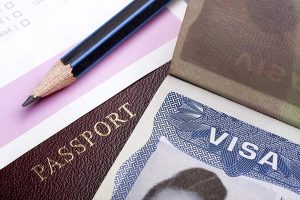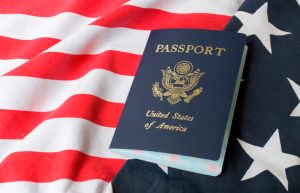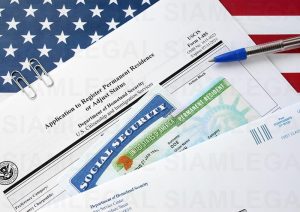The I-601 Waiver of Grounds of Inadmissibility is a critical tool for individuals seeking to enter or remain in the United States despite being deemed inadmissible under U.S. immigration law. Inadmissibility can arise from various grounds, including criminal history, immigration violations, health-related issues, or fraud. The I-601 waiver allows applicants to request forgiveness for these inadmissibility grounds, provided they can demonstrate that their denial of admission would result in extreme hardship to a qualifying U.S. citizen or lawful permanent resident (LPR) relative. This article provides an in-depth exploration of the I-601 waiver application process, eligibility criteria, required documentation, and strategic considerations for applicants seeking assistance.
1. Overview of the I-601 Waiver
The I-601 waiver is a discretionary benefit granted by the U.S. Citizenship and Immigration Services (USCIS). It is designed to provide relief to individuals who are otherwise barred from entering or remaining in the United States due to specific grounds of inadmissibility. The waiver does not erase the inadmissibility but allows the applicant to overcome it for immigration purposes.
1.1 Grounds of Inadmissibility
Common grounds of inadmissibility that may be waived through the I-601 include:
- Health-Related Grounds: Certain communicable diseases or lack of required vaccinations.
- Criminal Grounds: Crimes involving moral turpitude, drug offenses, or multiple criminal convictions.
- Immigration Violations: Unlawful presence, misrepresentation, or fraud.
- Security and Related Grounds: Membership in terrorist organizations or participation in persecution.
1.2 Qualifying Relatives
To be eligible for the I-601 waiver, the applicant must demonstrate that their denial of admission would cause extreme hardship to a qualifying relative, who must be either:
- A U.S. citizen spouse or parent.
- A lawful permanent resident (LPR) spouse or parent.
2. Eligibility Criteria for the I-601 Waiver
The I-601 waiver is not automatically granted; applicants must meet specific eligibility criteria and provide compelling evidence to support their case. Key eligibility requirements include:
2.1 Extreme Hardship
The cornerstone of the I-601 waiver is demonstrating that the denial of admission would result in extreme hardship to a qualifying relative. Extreme hardship is not defined by statute but is generally interpreted as hardship that is significantly greater than the normal emotional or financial difficulties associated with separation.
Factors considered in evaluating extreme hardship include:
- The qualifying relative’s health, including medical conditions requiring ongoing care.
- Financial impact, such as loss of income or inability to meet basic needs.
- Emotional and psychological impact, including the effect on children or elderly family members.
- Ties to the U.S., such as length of residence, community involvement, and employment.
2.2 Admissibility Grounds
The applicant must be inadmissible under one or more of the grounds listed in the Immigration and Nationality Act (INA) that are eligible for a waiver. Not all grounds of inadmissibility can be waived; for example, certain drug trafficking offenses are permanently disqualifying.
2.3 Good Moral Character
Applicants must demonstrate good moral character, which may be assessed through criminal history, immigration violations, and other factors.
3. Application Process for the I-601 Waiver
The I-601 waiver application process is complex and requires careful preparation. The steps include:
3.1 Filing the Form I-601
Applicants must complete and submit Form I-601, Application for Waiver of Grounds of Inadmissibility, along with the required filing fee. The form can be filed either:
- Consular Processing: For applicants outside the U.S. who are applying for an immigrant visa.
- Adjustment of Status: For applicants already in the U.S. seeking to adjust their status to lawful permanent resident.
3.2 Supporting Documentation
The application must be accompanied by extensive documentation to support the claim of extreme hardship. Key documents include:
- Evidence of the Qualifying Relationship: Marriage certificates, birth certificates, or other proof of the relationship to the U.S. citizen or LPR relative.
- Medical Records: Documentation of the qualifying relative’s medical conditions and the impact of separation.
- Financial Records: Proof of financial dependence, such as tax returns, pay stubs, or bank statements.
- Psychological Evaluations: Reports from licensed mental health professionals detailing the emotional and psychological impact of separation.
- Affidavits: Statements from the applicant, qualifying relative, and other witnesses describing the hardship.
3.3 Legal Arguments
Applicants should include a detailed legal argument explaining how the evidence meets the extreme hardship standard. This may involve citing relevant case law, USCIS policy guidance, and precedential decisions.
3.4 Submission and Processing
The completed application and supporting documents are submitted to the appropriate USCIS office. Processing times vary but can take several months. Applicants may be required to attend an interview or provide additional evidence.
4. Strategic Considerations for Applicants
Successfully navigating the I-601 waiver process requires careful planning and strategic decision-making. Key considerations include:
4.1 Building a Strong Case
The success of an I-601 waiver application hinges on the strength of the evidence and legal arguments. Applicants should:
- Gather comprehensive documentation to support the claim of extreme hardship.
- Work with experienced legal professionals to craft a compelling narrative.
- Address potential weaknesses in the case, such as criminal history or prior immigration violations.
4.2 Timing and Preparation
The I-601 waiver process can be lengthy, and delays can have significant consequences. Applicants should:
- Begin gathering evidence and preparing the application as early as possible.
- Ensure that all documents are accurate, complete, and properly translated (if applicable).
- Monitor processing times and follow up with USCIS as needed.
4.3 Legal Representation
Given the complexity of the I-601 waiver process, many applicants choose to work with an experienced immigration attorney. Legal representation can help:
- Navigate the legal and procedural requirements.
- Identify and address potential issues in the application.
- Present the case in the most favorable light to USCIS.
4.4 Alternative Options
In some cases, alternative forms of relief may be available, such as:
- I-601A Provisional Waiver: For applicants who are in the U.S. and seeking to waive unlawful presence before departing for consular processing.
- I-212 Application for Permission to Reapply: For individuals who have been removed or deported and need permission to reenter the U.S.
5. Challenges and Common Pitfalls
The I-601 waiver process is fraught with challenges, and even minor errors can result in denial. Common pitfalls include:
5.1 Insufficient Evidence
One of the most common reasons for denial is insufficient evidence of extreme hardship. Applicants must provide detailed and credible documentation to support their claims.
5.2 Inconsistent or Contradictory Information
Inconsistencies in the application or supporting documents can raise red flags and lead to denial. Applicants should ensure that all information is accurate and consistent.
5.3 Failure to Address Negative Factors
Applicants with criminal history or prior immigration violations must address these issues head-on and provide evidence of rehabilitation or mitigating circumstances.
5.4 Lack of Legal Guidance
Attempting to navigate the I-601 waiver process without legal assistance can result in costly mistakes. Professional guidance is essential to maximizing the chances of success.
6. Case Studies: I-601 Waiver Success Stories
6.1 Medical Hardship
A U.S. citizen spouse with a chronic medical condition successfully obtained an I-601 waiver for her husband, who was inadmissible due to unlawful presence. The application included detailed medical records, affidavits from healthcare providers, and evidence of the spouse’s inability to access necessary care without her husband’s support.
6.2 Financial Hardship
An LPR parent demonstrated extreme financial hardship by showing that her son’s denial of admission would leave her unable to support her elderly parents and pay for her own medical expenses. The application included tax returns, bank statements, and affidavits from family members.
6.3 Emotional Hardship
A U.S. citizen child with severe emotional and psychological issues successfully obtained an I-601 waiver for her father, who was inadmissible due to a criminal conviction. The application included psychological evaluations, school records, and statements from mental health professionals.
7. Conclusion
The I-601 Waiver of Grounds of Inadmissibility is a vital lifeline for individuals seeking to overcome inadmissibility and reunite with their families in the United States. However, the application process is complex and requires meticulous preparation, compelling evidence, and strategic planning. By understanding the eligibility criteria, gathering strong documentation, and seeking professional assistance, applicants can maximize their chances of success. For those facing the daunting prospect of separation from their loved ones, the I-601 waiver offers a path to hope and reunification, provided they navigate the process with care and diligence.












